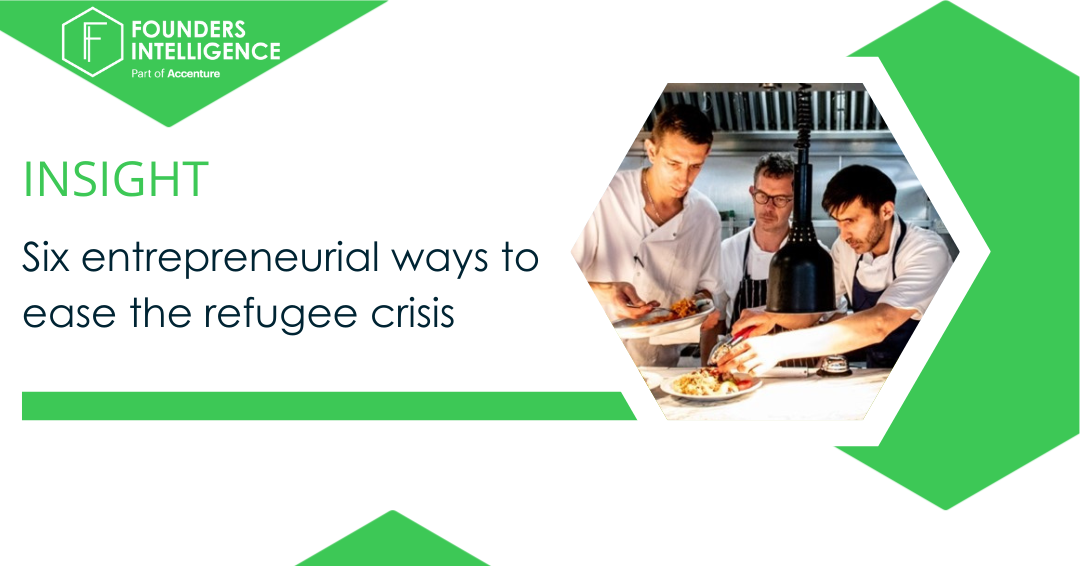For Tomorrow’s Commercial Success, Innovate in Sustainability Today.
From Unilever et al’s experiments with re-useable packaging system Loop, to animal-free meat like Burger King’s Impossible Whopper, major players are finally taking concrete steps to make their ingredients, supply chains and packaging more sustainable.

The burning platform is clear; the question is how best to maximise impact, rather than chasing PR to “greenwash” otherwise unchanged products?
- Focus on the problem, rather than a specific material: holistic solutions are complex, but they’re the only way to really make a difference.
- Example issue: Many companies are piloting biodegradable bioplastics as a replacement for petroleum-based plastics. While the former are based on a renewable, plant-based raw material, most are not biodegradable except in industrial composting facilities. And many of these cannot accept bioplastics due to contamination risks, so much of the waste is instead sent to landfill or waterways, where they still cause the same issues as standard plastics: accumulating in animals, filling up landfill, and poisoning our food chains.
- Potential solution: By looking at the overall issue of plastic production and pollution rather than the material replacement, some companies have focused on moving away from single-use packaging entirely. Apparel brand Filippa K has moved to a refillable, returnable packaging model by partnering with start-up RePack. Customers receive their online orders in a durable and re-useable package from RePack; those who return their packages are rewarded with 10% off their next order. By eliminating single-use plastics entirely, Filippa K changes consumer expectations around packaging, as well as incentivising repeat business.
2. Work together to create multi-lateral solutions that strengthen the weakest link in your supply chain: many sustainability issues require players across the value chain to collaborate; unilateral actions are thwarted by the scale and complexity of the problem.
- Example issue: Tracking materials and products through the supply chain promises to improve efficiency, reduce costs, provide transparency to consumers, and prevent fraud. VCs have poured $38.6bn into start-ups enabling supply chain efficiencies since 2009, yet no solutions have been implemented at scale which give real visibility and trust in product provenance.
- Potential solution: Incentivising multifarious players to adopt a specific system, without disrupting existing flows, at minimal cost — while protecting sensitive data from competitors. A promising example exists in the logistics space with Maersk and IBM’s Tradelens, a neutral platform that provides a secure source of shipping data from multiple players, secured on the blockchain. Maersk convened different groups to bring together data from ports, terminal operators, shippers, and freight forwarders. Data remains owned by the participant and can only be shared if they grant permission. By allowing users to subscribe to specific datastreams from an ecosystem of players on one platform, Tradelens creates network effects for buyers and data holders. The solution is reaching scale, with 10M shipping events are currently processed on the platform every week.
3. Post-manufacture is your problem too. How you sell and manage consumer waste matters. Concerned consumers are leading the charge in seeking out trusted retailers for products and disposing of them responsibly, but the answer will be about enabling consumers to make better choices, not about placing all responsibility in the retailer or consumers’ hands.
- Example issue: The fashion industry struggles with wastefulness that accompanies convenience. Retailers’ need to avoid empty shelf scenarios, rapid single-item delivery, and free deliveries and returns is economically driven — but doesn’t take into account the externalities. One in ten women wear a piece of clothing just three times, and the vast majority (85%) of discarded clothing goes to landfill.
- Potential solution: Companies will increasingly also turn to messaging around sustainability and waste reduction, and give consumers more opportunities to try and buy more sustainable products. The best players are focused on improving inventory management, managing speed through their reverse logistics processes, analysing returns and waste on a store-level basis, and recycling waste into new products. T-shirt-brand For Days is creating a closed-loop supply chain around apparel, allow users to subscribe to a supply of T-shirts. Any worn out t-shirts are returned to the brand, to be recycled into new garments.
The road to a more sustainable future is long and hard, with significant R&D, implementation, and launch costs — but it’s also non-negotiable: consumers, shareholders and governments increasingly demand it. The need for innovation is clear: we cannot continue with the products and formats we have, manufactured and distributed in the way they are.
You don’t have to solve these issues alone: there’s a vast amount of mind-power, talent and money being poured into thousands of innovative, tech driven companies who aim to crack these problems. Start-up and scale-up partnerships are a powerful tool to test and initiate potential solutions at lower cost and greater speed. It’s key to accurately define and scope the partnership, source the full suite of potential partners and diligence them effectively to ensure that pilots test the right questions and provide meaningful data to support the case to scale up the partnership.
The big question is not if or when, but what specific actions major players are taking to significantly reduce their environmental impact.


